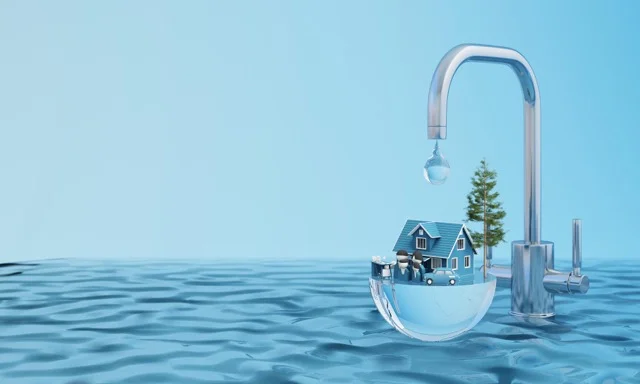4 Easy Facts About Reclaim Waste Explained
4 Easy Facts About Reclaim Waste Explained
Blog Article
The Greatest Guide To Reclaim Waste
Table of ContentsThe Basic Principles Of Reclaim Waste Getting My Reclaim Waste To WorkReclaim Waste Can Be Fun For AnyoneThe 15-Second Trick For Reclaim WasteFacts About Reclaim Waste Revealed
Discover the kinds, incidents, and types of liquid waste. Residential sewage waste describes the waste and products from a domestic septic system. This kind of waste is created by human beings in homes, schools, and various other buildings. This only includes septic systems that have a drainpipe field. The proper administration and disposal of residential sewage waste call for liquid waste to be moved to a sewage therapy plant where the appropriate methods and devices are related to purify and throw away waste.
Commercial waste usually consists of potential hazards, such as combustible products or a combination of fluid and strong waste products, and requires a much more innovative and comprehensive disposal process. The disposal of industrial waste normally includes the filtration of waste prior to transportation to ensure safe and proper disposal. Hazardous waste is produced from by-products and runoff of commercial procedures and production.
This kind of waste can not use the exact same sewer management transportation or processes as septic or business fluids. The hazardous waste monitoring process requires the inspection and testing of liquid waste prior to it undergoes the disposal process (industrial wastewater treatment). Overflow waste is the liquid waste that originates from drainage and excess stormwater in very booming locations or cities
Runoff waste can create contamination and flooding if not taken care of appropriately. Guaranteeing proper waste management can avoid catastrophes and reduce ecological injury.
The Single Strategy To Use For Reclaim Waste
Call PROS Providers today to learn more about our waste administration and disposal services and the proper methods to take care of the liquid waste you create.
(https://www.tumblr.com/reclaimwaste1/766851148823068673/at-reclaim-waste-were-a-national-solutions?source=share)Do you recognize what occurs to your water when you end, flush the commode or drain pipes the cleaning machine? No? Well, it's worth recognizing. This supposed 'wastewater' is not just an important source yet, after therapy, will certainly be launched to our land, waterways or the ocean. Made use of water from toilets, showers, bathrooms, kitchen sinks, washings and commercial processes is called wastewater.

water utilized to cool down equipment or tidy plant and tools). more information Stormwater, a form of wastewater, is drainage that moves from farming and metropolitan locations such as roofs, parks, gardens, roadways, courses and rain gutters into stormwater drains, after rain. Stormwater streams untreated straight to neighborhood creeks or rivers, eventually getting to the sea.
The Basic Principles Of Reclaim Waste
In Queensland, many wastewater is treated at sewage therapy plants. Wastewater is moved from residential or commercial sites through a system of sewers and pump terminals, recognized as sewerage reticulation, to a sewer treatment plant.
The Department of Natural Resources recommends regional governments concerning handling, operating and preserving sewerage systems and treatment plants. In unsewered areas, city governments might require householders to mount individual or household sewage therapy systems to deal with residential wastewater from bathrooms, cooking areas, washrooms and laundries. The Department of Natural Resources authorizes the usage of family systems when they are verified to be reliable.
The majority of stormwater receives no treatment. In some brand-new class, therapy of some stormwater to remove trash, sand and gravel has begun making use of gross contaminant traps. Wastewater treatment happens in four stages: Eliminates strong issue. Bigger solids, such as plastics and other things wrongly released to sewage systems, are gotten rid of when wastewater is gone through screens.
Wastewater then streams into large storage tanks where solids clear up and are eliminated as sludge. Oil and residue are skimmed from the surface. Makes use of tiny living microorganisms called micro-organisms to break down and get rid of continuing to be liquified wastes and fine fragments. Micro-organisms and wastes are included in the sludge. Eliminates nitrogen and phosphorus nutrients that could create algal blooms in our rivers and endanger marine life.
10 Simple Techniques For Reclaim Waste
Nutrient elimination is not offered in all sewage treatment plants since it calls for expensive specialized devices. It is becoming extra typical in Queensland. Clear fluid effluent created after therapy may still include disease-causing micro-organisms. If this effluent is launched into rivers such as rivers or the sea, the micro-organisms will eventually pass away out.

A lot of wastewater streams right into the sewerage system. Under the Act, neighborhood federal governments provide approvals and permits for eco appropriate tasks (Periods) entailing wastewater releases that may have a regional effect.
Things about Reclaim Waste
Surveillance provides factual info regarding water top quality and can validate that permit problems are being met. The information obtained through tracking supplies the basis for making water top quality choices.
Report this page